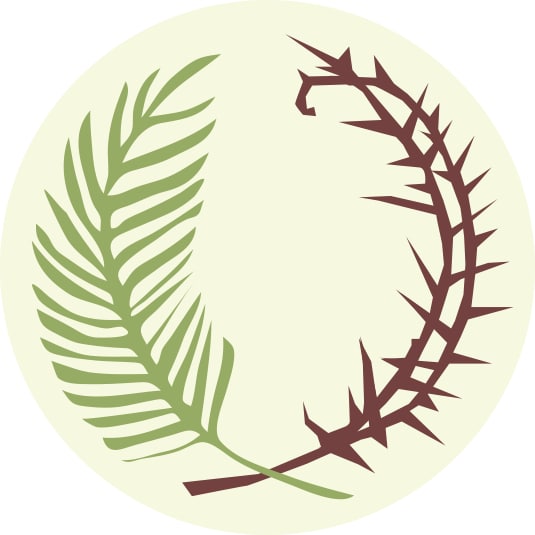Blessed Is He Who Comes in the Name of the Lord Mr Gerry Wisz
“Open to me the gates of righteousness, that I may enter through them and give thanks to the Lord. Save us, we pray, O Lord! O Lord, we pray, give us success! Blessed is he who comes in the name of the Lord . . . the Lord is God, and he has made his light to shine upon us. Bind the festal sacrifice with cords, up to the horns of the altar! You are my God, and I will give thanks to you; you are my God; I will extol you.”
—Psalm 118:19, 25–28
These are the words the people sang in Jerusalem as Jesus, to much fanfare, arrived just before Passover. The people took off their robes and spread them with cut palm branches before his path as he made his way toward the temple, riding on a donkey. Did they know what they were saying?
Many did receive him as the one “who comes in the name of the Lord,” recognizing at the least that he was a prophet (Matt. 21:11). The fact that he came riding not on a war horse but on a foal of a donkey (Zech. 9:9) indicated to the disconcerted Scribes and Pharisees looking on that he was coming to Jerusalem as a king, bringing peace.
But he was—and is—a priest as well. The priests in the temple were a shadowy configuration of him. How he would fulfill his priestly role was still to come. He himself would be the festal sacrifice bound with cords and brought up to the horns of the altar, after which the curtain separating the inner sanctuary from all the people would be rent in two. The cry for offering a sacrifice at Passover would be fulfilled, but not in the way the people expected.

The people cried out to him as the son of David, “Hosanna,” that is, “Save”; “bring success.” Israel was long under the heels of foreign oppressors of one kind or another; Rome was no different to them. They were counted, taxed, and bullied. They longed for freedom and a restoration of their kingdom, the one David had won and Solomon had established. This, they thought, would comprise their salvation.
But Jesus came to establish a different kingdom. The focus was no longer to be Israel’s national temple; he was the Temple into which all the nations would come (Isa. 2:2). The temple of bricks and mortar would eventually be destroyed and evacuated, but as the Temple, Christ—the one whom the rebuilt temple represented—though destroyed, would be reconstituted and stand forever. Thus he fulfills and grants the request of “Hosanna”: the redemption and establishment of a kingdom, this time one that will never end.
While in the temple, Jesus overturns the money-changers’ tables, again fulfilling prophecy (Isa. 56:7; Jer. 7:11), showing that in matters pertaining to God and his worship, there is no place for profit taking. He has choice words for the chief priests and Pharisees, whom he tells that they have matters exactly backwards: their rule devising, burdening the people with them, and repeatedly failed attempts at keeping them themselves are not the way to God.
The way to God, but also the truth and the life, is standing before them. Jesus instructs as well as rebukes them, on paying taxes, on the resurrection and marriage, and on the identity of the Son of Man. Before leaving the city with his disciples, he grieves over Jerusalem, remarking that they will not see him again until they—like the people at his arrival—say, “Blessed is he who comes in the name of the Lord” (Matt. 23:39; Ps. 118:26).
In the meantime, his prophetic Word and Spirit would soon begin to change the face of the world, and his high priestly office—established within days of his arrival in Jerusalem—will achieve what all the chief priests through all of Israel’s generations merely pointed to. May we also then sing verses 22–23 of Psalm 118: “The stone that the builders rejected has become the cornerstone. This is the Lord’s doing: it is marvelous in our eyes.”
Mr. Gerry Wisz and his wife, Betty, live in Garfield, NJ, and are parents to eight children and grandparents to six. His family (children still at home) are members of Preakness Valley URC in Wayne, NJ. Gerry has been a long-time contributor to Christian publications, including Christian Renewal and World Magazine, and is featured on Redeemer Broadcasting’s show “Holding All Things Together.” He has also served as an elder in the Orthodox Presbyterian Church. He can be reached at gmwisz@optonline.net.
